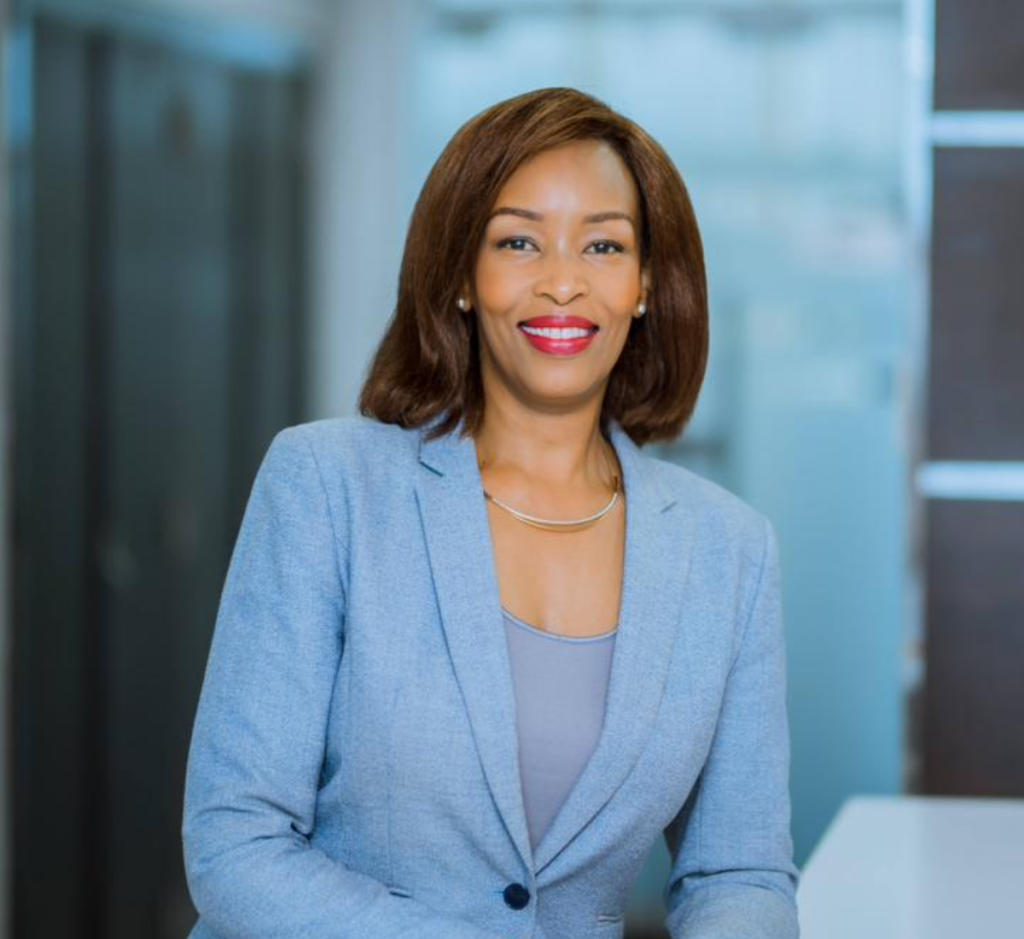The constitution in Rwanda notes that Gender equality between Men and Women must be granted in all their rights. In 2015, Rwanda introduced a legislation that requires all public organizations to have women in 30% of its decision-making roles in these entities. Ms. Lina Higiro, the Chief Executive Officer of NCBA Bank Rwanda as well as co-founder of Women in Finance Rwanda says this requirement reshaped many public institutions to develop processes and value propositions to recruit competent Women and to ensure that this requirement for female representation is achieved. The same trend is now picking up also in Rwanda’s private sector organizations.
Rwanda may have one of the highest number of Female property owners in the world.

“We have a law governing land ownership in place that gives equal right for both men and women to access, own and use land,” said Higiro. In an interview with Kenyan Wallstreet, Ms Higiro said financial institutions in the country also require any borrower to provide details of their family/marriage status, giving women in the home a lot of confidence and say. Similarly, this law protects men in marriage who might be left out in a land transaction, especially in cases where the woman has more access to land and finance compared to the man.
Rwanda has laid down regulations that require every parastatal or government entity to have a budget allocation for gender-supportive activities and these budgets must be tabled and discussed in Parliament, raising accountability to the highest level of governance.
This legal requirement and measure has ensured practical actions at district levels as well as discussions within families and communities on KPIs. There are frameworks that encourage discussions within families where gender parity views are heard.
“We also have a law governing matrimonial regimes, donations and successions. In Rwanda now, effective 2016, there is equal treatment of legitimate children whether male or female to the right of succession. The law also allows a surviving spouse to take part in family property succession,” said Higiro.
In 2018, Rwanda passed a law that governs equal opportunity and pay during maternity to ensure better working conditions for pregnant women. This regulation has pushed forward gender parity as a brand for Rwanda and forced the private sector to also look into the same.
While Rwanda has made significant strides to push women to higher positions within their organizations, significant challenges still remain.
Higiro explains why many women do not feature in middle and executive levels in many financial institutions in Rwanda and elsewhere.
“Many women who have the potential to move up the career ladder in the finanical sector do a cost benefit analysis, especially in mid-career, and find that the work environment does not support family commitments, which ultimately forces many to exit the sector for self-employment or other sectors.,” she says.
Women in Finance Rwanda Foundation identifies this mid-career crisis, post maternity challenges, and lack of mentorship support as one of the many barriers in the financial sector.
“The Women in Finance Rwanda Foundation and other networks in Rwanda need to investigate, influence and implement the change that is needed to move women from entry to executive levels..,” said Higiro.
She adds that for many women, asking for flexible hours is a source of embarrassment.
“The issue of flexible hours in a work place should be normalized so that a women/men can take their children to hospital, or attend to special school needs.. Networks and foundations need to influence public policy to allow organizations to integrate Life and Work, to avoid the “Present but Not Present cost to business,” said Higiro.
Women in Finance Rwanda
When Women in Finance Rwanda Foundation was launched, Higiro said the organization received overwhelming support and willingness by various financial institutions.. The foundation serves as a platform where women professionals in the financial sector can connect, learn, and grow. It acts as a one-stop shop, offering valuable insights, peer-to-peer support, community engagement, and career development opportunities.
Women in Finance Rwanda marks a significant milestone in the journey towards gender equality and empowerment in the financial sector. With its diverse range of programs and support systems, the initiative aims to create a transformative space for women to thrive, excel, and shape the future of the financial industry,” she said.
Higiro told Kenyan Wallstreet that while significant strides have been made for women in Rwanda, other challenges remain.
“We still have a challenge of less than 30% representation in our Executive Committees, I therefore urge respective organizations to make parity a strategic imperative and seek to understand through data, with the intention to build business competitiveness through diversity” said Higiro.
Angaza Forum Rwanda
Women in Finance Rwanda is one of the organizations that will feature prominently during the Angaza Awards Ceremony happening in Rwanda in August this year.
“It will be financial sector-focused event in Rwanda, an opportunity to engage and craft ideas needed to move forward, ideas that we can account for and share as well as listen in on the many prominent speakers invited at this event,” said Higiro on why she is excited to be part of the forum.
She said global and regional networks such as Women in Finance Rwanda have an opportunity and a unique role to play in driving financial sector competitiveness, inclusion, and collaborative strength. .
“The upcoming Angaza Awards forum in Rwanda provides us with global and regional networks that can be extremely impactful in mentoring women leaders. I co-founded Women in Finance Rwanda with seed inspiration pushed forward by Angaza- which celebrates achievements of women and anchors their ambitions in community” said Higiro.
ALSO READ; Angaza Awards Top 10 Finalists; Lina Higiro




